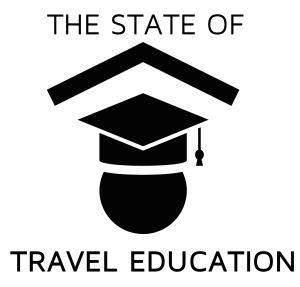The Travel Employee Talent Gap Is a Multi-Billion Dollar Problem
Skift Take
Educated travel employees with bright ideas already hold a lot of leverage at their workplaces.
The travel talent gap is a result of under-educated employees not positioned to lead the charge of moving the industry forward. These are people who are not college-educated and in many cases didn't finish high school either. The rising cost of college in the U.S. already bars countless students from the halls of academia, something even more crushing in developing economies without resources to build quality higher education institutions.
Without properly educated employees with skill sets to create meaningful tourism experiences, destinations' tourism magnets grow weaker and spending decreases may follow.
Many of the world's most powerful countries, including the U.S., China, Russia, France, and the UK will all experience this talent gap and the consequences include the loss of billions of dollars and millions of jobs, data from the World Travel and Tourism Council (WTTC) argue. The data draw from current talent supply statistics to predict future talent supply and demand needs and what countries will best enable talent to grow.
The most impacted country would be Thailand, losing 1.6 million jobs, or about 20% of its travel industry employment, and $32 billion, 23% of its travel GDP over a 10-year period (2014-2014).
China would lose the most jobs and money from the talent gap, costing the country 3.7 million jobs in its travel industry and taking away $78 billion from its travel GDP over the same period.
The U.S. would lose 647,000 jobs from the gap, 4% of its jobs connected its travel industry, and $76 billion, 4% of its travel GDP. After China, the U.S. would lose the most money, but compared to other countries the percentage of its travel GDP that would be lost wouldn't be nearly as severe.
The countries with the fastest tourism growth, such as Brazil, China and Russia, are on track to be some of the biggest talent gap losers as the number of people qualified to help innovate their travel industries won't keep pace with the masses of people now traveling to and from these countries.
Countries With the Most Impact to Travel Employment by 2024
| Country | % Impact | Total Travel Jobs in 2024 |
|---|---|---|
| Thailand | -20% | 8.2 million |
| Russia | -14% | 4.6 million |
| Taiwan | -14% | 814,000 |
| Poland | -14% | 1.02 million |
| Costa Rica | -14% | 355,000 |
| Turkey | -14% | 3.04 million |
| Italy | -12% | 3.09 million |
| Argentina | -12% | 2.2 million |
| Malaysia | -12% | 2.6 million |
| Morocco | -12% | 2.4 million |
Countries Losing the Most Travel Jobs to Talent Gap by 2024
| Country | Jobs Lost |
|---|---|
| China | 3.7 million |
| Thailand | 1.6 million |
| India | 1.5 million |
| Indonesia | 647,000 |
| US | 647,000 |
| Russia | 640,000 |
| Brazil | 467,000 |
| Turkey | 412,000 |
| Mexico | 385,000 |
| Italy | 372,000 |
Countries Losing the Most Money to Travel GDP by 2024
| Country | Money Lost From Travel GDP 2014-2024 ($) |
|---|---|
| China | 78 billion |
| US | 76 billion |
| Italy | 43 billion |
| Russia | 36 billion |
| France | 32 billion |
| Thailand | 32 billion |
| UK | 28 billion |
| Japan | 27 billion |
| Turkey | 26 billion |
| Spain | 24 billion |
Countries With the Most Impact to Travel GDP by 2024
| Country | % Impact | Total Travel GDP in 2024 ($ billions) |
|---|---|---|
| Thailand | -23% | 137 |
| Poland | -19% | 45 |
| Taiwan | -18% | 36 |
| Italy | -17% | 251 |
| Russia | -17% | 216 |
| Turkey | -17% | 158 |
| Argentina | -16% | 66 |
| Peru | -16% | 37 |
| Costa Rica | -15% | 10 |
| Czech Rep. | -14% | 24 |
Source: WTTC





